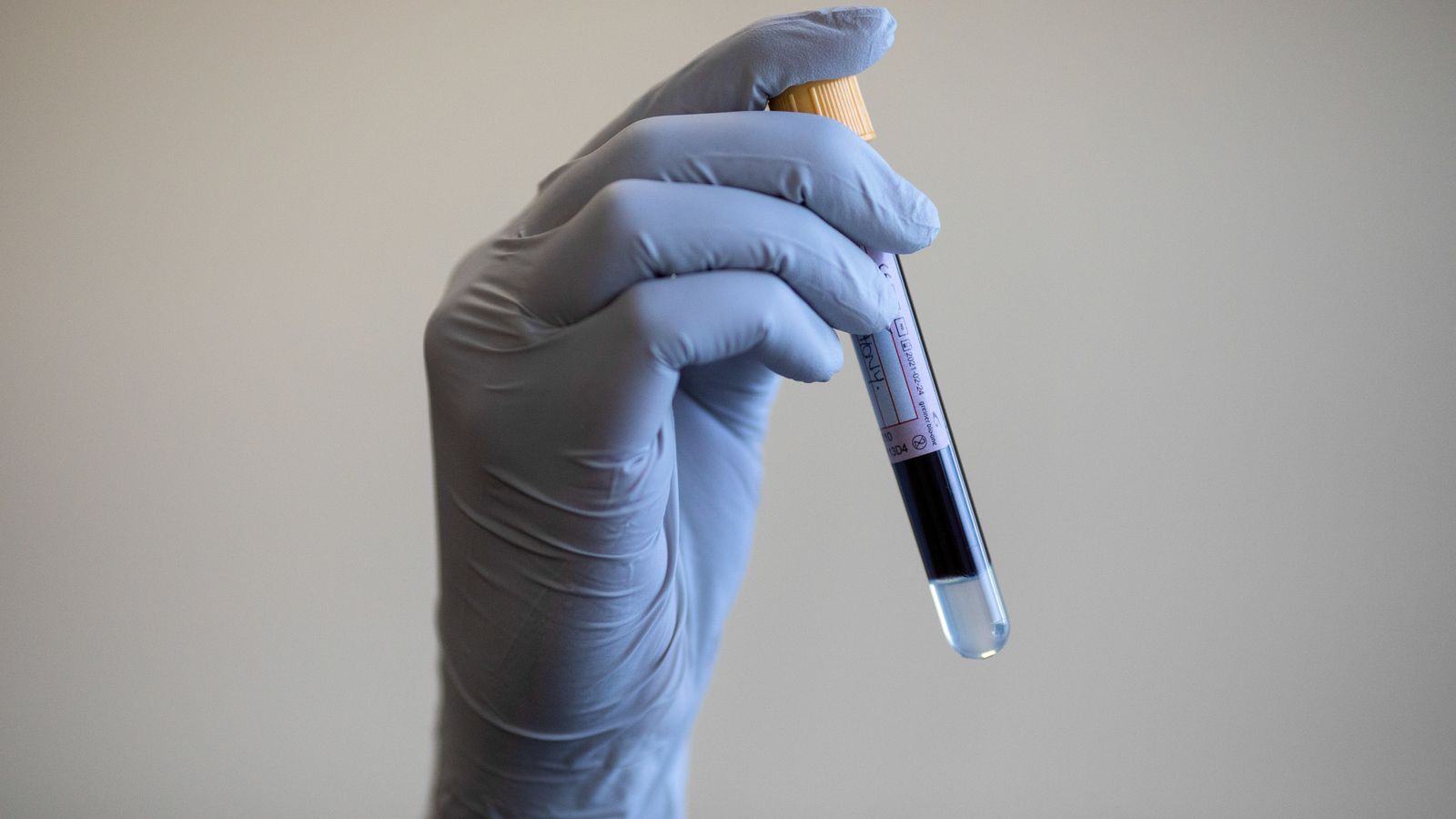Non-urgent blood testing in England and Wales is set to fully resume next month after it was scaled back due to a lack of vials.
In a memo sent to staff in August, the NHS told doctors to slow down regular blood tests following a shortage of the tubes supplied by US company Becton Dickinson. NHS Wales communicated similar advice.
Since 26 August, blood tests were reserved for high-priority patients only, including those with suspected sepsis or conditions with a risk of death or disability, or those which were “extremely overdue”.
It resulted in hospitals cutting blood testing back by one quarter.
In a letter to doctors this week, NHS England said a delivery of nine million tubes means that normal testing is likely to resume across all services from next month.
It said primary and community care services, which include GP surgeries, can resume normal testing from Friday, but A&E departments, community hospitals and mental health trusts must maintain lower levels of testing until 8 October.
COVID-19: ‘Significant increase’ in opioid use for pain relief during coronavirus pandemic, study shows
NHS in England short of 50,000 doctors ahead of what is set to be one of the worst winters on record, British Medical Association warns
COVID-19: Freedom Day was ‘gamble’ and has contributed to 40,000 hospital admissions, BMA says
Please use Chrome browser for a more accessible video player
However, the letter from NHS England national medical director Professor Stephen Powis, interim chief operating officer Mark Cubbon and medical director for primary care Dr Nikita Kanani warned that the supply issue is “not yet completely resolved”.
It states: “Becton Dickinson has now completed improvements to its manufacturing facility in the UK and expects its production capacity to recover through September.
“These developments, alongside the efforts of NHS staff to manage use, mean that the supply situation is no longer as constrained… however, the issue is not yet completely resolved.”
Becton Dickinson previously said the coronavirus pandemic had dramatically increased demand for blood tubes, and that this was exacerbated by a backlog of routine blood testing that hospitals were trying to catch up with.
The UK’s supply chains have been hit in recent weeks by a perfect storm of a huge shortfall of lorry drivers, a lack of EU workers post-Brexit, and staff being forced to isolate, disrupting the supply of dozens of items like medical supplies, milk and peri-peri chicken.






















